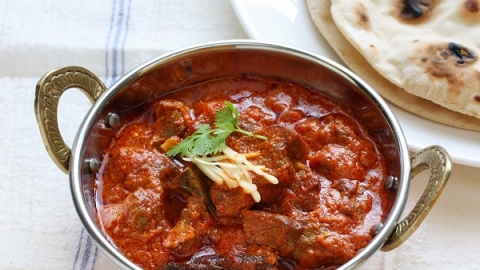Kanchipuram is home to many ancient temples, some of the most famous and sacred in India. It boasts approximately 1,000 temples dedicated to deities of various religions, primarily Hinduism. Below are some of the ancient and sacred temples in Kanchipuram that you absolutely must visit when you come to this city.
Ekambareswarar Temple
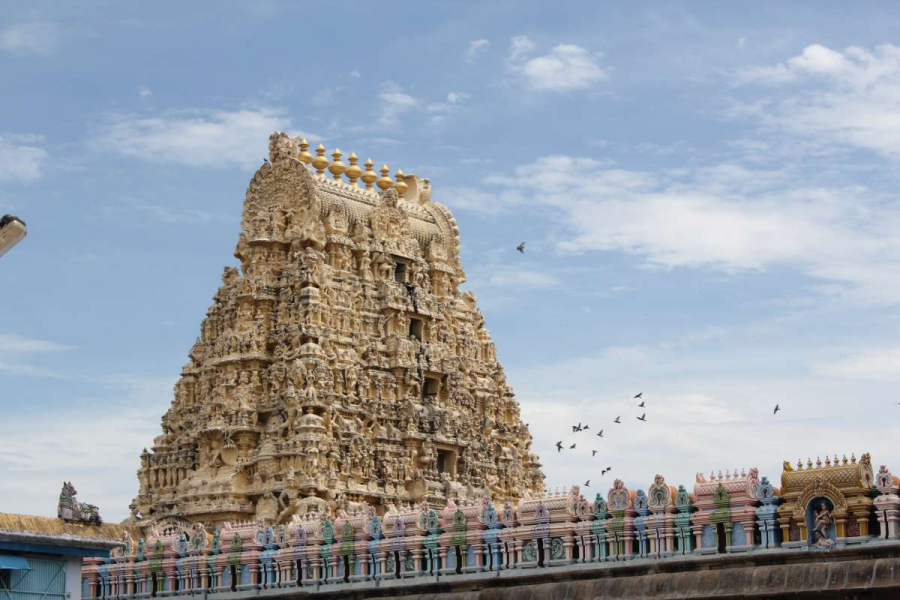
Ekambareswarar is one of the five main temples dedicated to Shiva – the Hindu god. Spanning over 10 hectares, it is the largest place of worship in the city. Built in the 6th century during the Pallava dynasty – a South Indian dynasty – the temple underwent significant changes under the rule of Tanjore Nayaks. During this period, a gopuram was constructed, a massive 59-meter-tall tower, one of the tallest in the area. Besides its religious significance, Ekambareswarar is also the site of the most important religious festival in Kanchipuram: the Panguni Brahmotsavam festival, which takes place from March to April each year and lasts for 10 days.
Kanchi Kailasanathar Temple
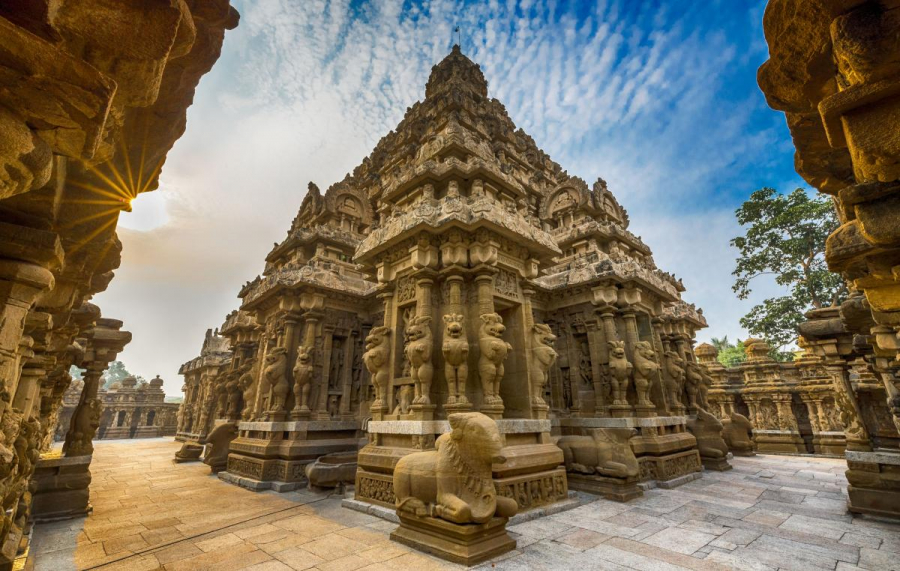
While Ekambareswara is the largest temple in Kanchipuram, Kailasanathar is the oldest temple in the city dedicated to Shiva, and also one of the earliest examples of Pallava architecture. The main hall houses a unique Shivalinga, a sixteen-faced sculpture of Shiva carved from black granite. The smaller temples feature numerous pillars and columns adorned with sculptures of deities. Visitors here not only have the opportunity to visit this sacred ancient temple but also to admire the unique architecture of Pallava.
Kamakshi Amman Temple
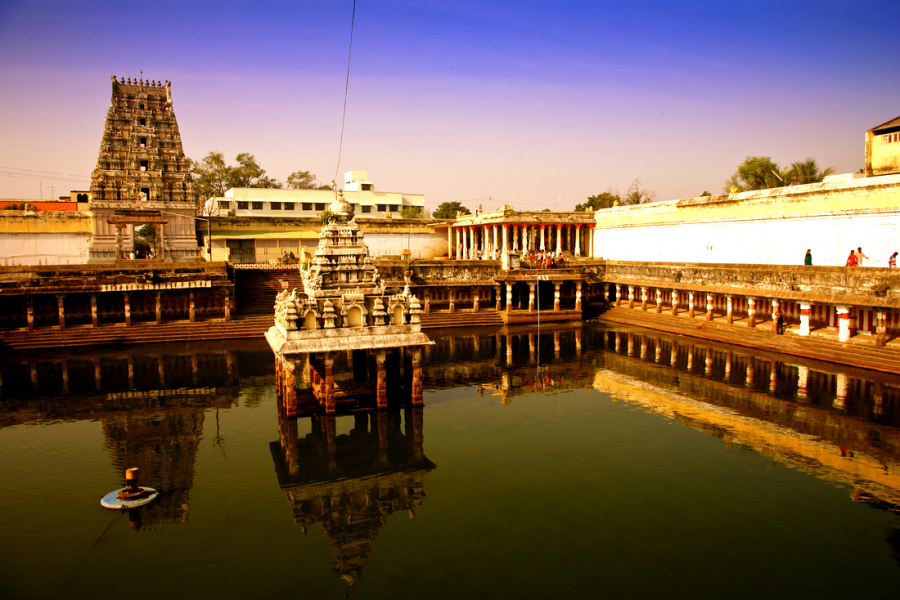
Kamakshi Temple is an ancient Hindu temple dedicated to Kamakshi – the final form of the goddess Lalitha Maha Tripurasundari. The Kamakshi Temple in Amman is steeped in the religious heritage of Kanchipuram. The temple is believed to have been built by the Pallava kings. Its history is rich with myths and legends associated with the goddess Kamakshi. Every year, between mid-February and March, a spectacular chariot festival takes place here, featuring ancient customs and activities that attract large numbers of locals and tourists.
Varadharaja Perumal Temple
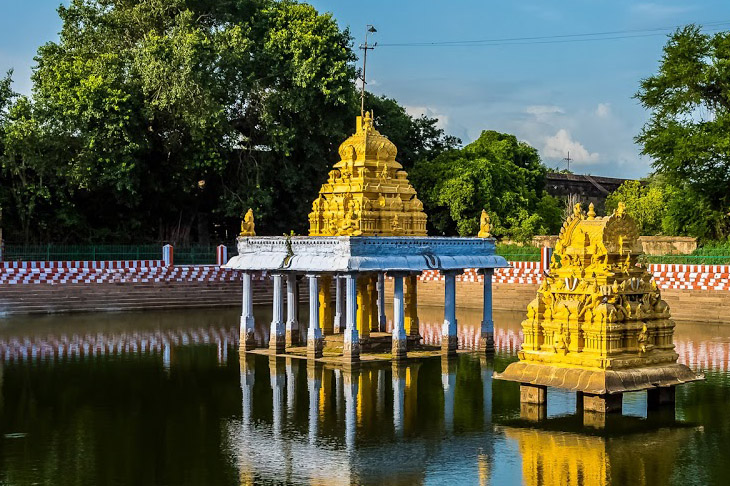
The Varadharaja Perumal Temple is a place of worship dedicated to the god Vishnu. This beloved sacred temple in Kanchipuram is also a haven for followers of Vaishnavism. Permunal is one of the 108 temples mentioned in the works of Alvars – Divya Desams. The temple is notable for its more than 300 inscriptions, almost all relating to the dynasties of South India. In addition, the "room of 100 pillars," with its numerous sculptures depicting Hindu deities, is another highlight of the temple.
Varadharaja Perumal Temple
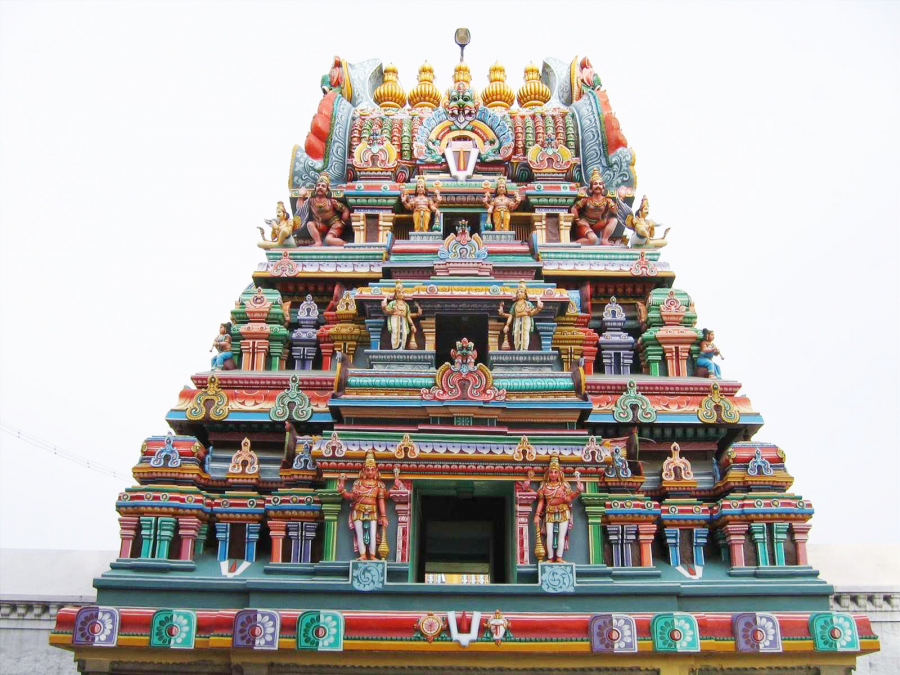
This relatively small temple takes its name from Vamana – the fifth manifestation of the god Vishnu. Like Varadharaja Perumal, it is also one of the 108 Divya Desams. The temple features traditional Dravidian architecture and is mentioned in famous Tamil literary works. Many festivals are held here annually, attracting considerable attention. One of the most famous is Brahmotsavam.
Sathyanatheswarar Temple
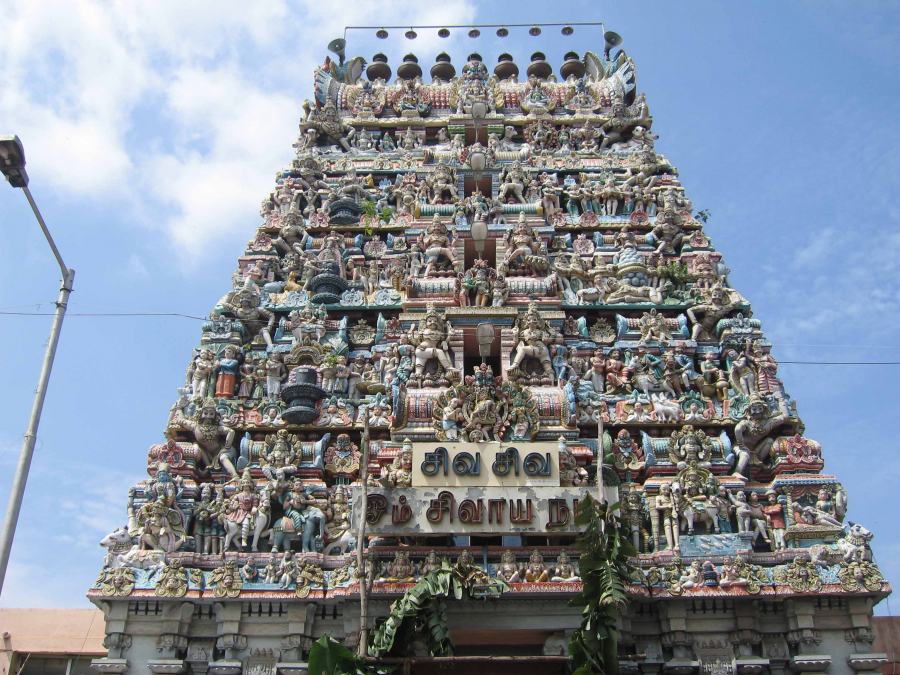
This temple was built in the 7th century. It is the smallest of the main temples in Kanchipuram, covering only 2,290 square meters. Despite this, the temple holds significant historical and religious importance. It is dedicated to the worship of Sathyanatheswarar – another incarnation of Shiva. The main Gopuram of the temple is built in three tiers, and inside it is a linga (a symbol of Shiva worship) made of granite. The Sathyanatheswarar Temple is also one of the 275 important Shiva temples mentioned in Tamil Shaivite texts.

 VI
VI EN
EN



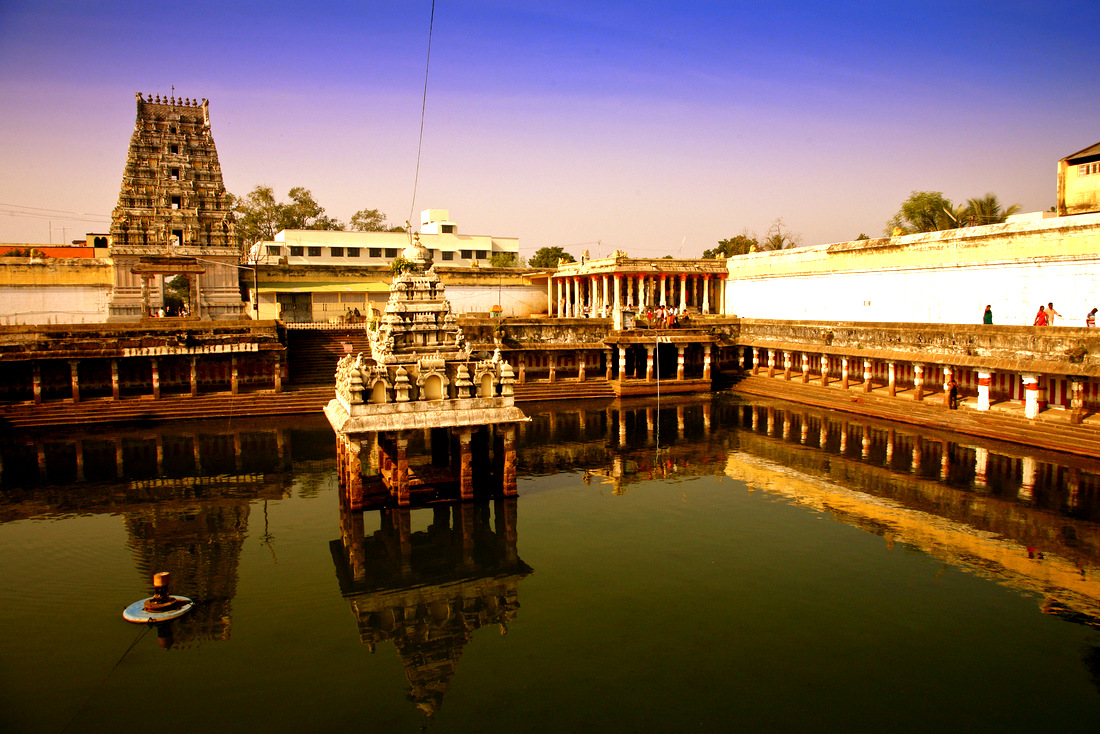















.jpg.jpg)





.jpg.jpg)
